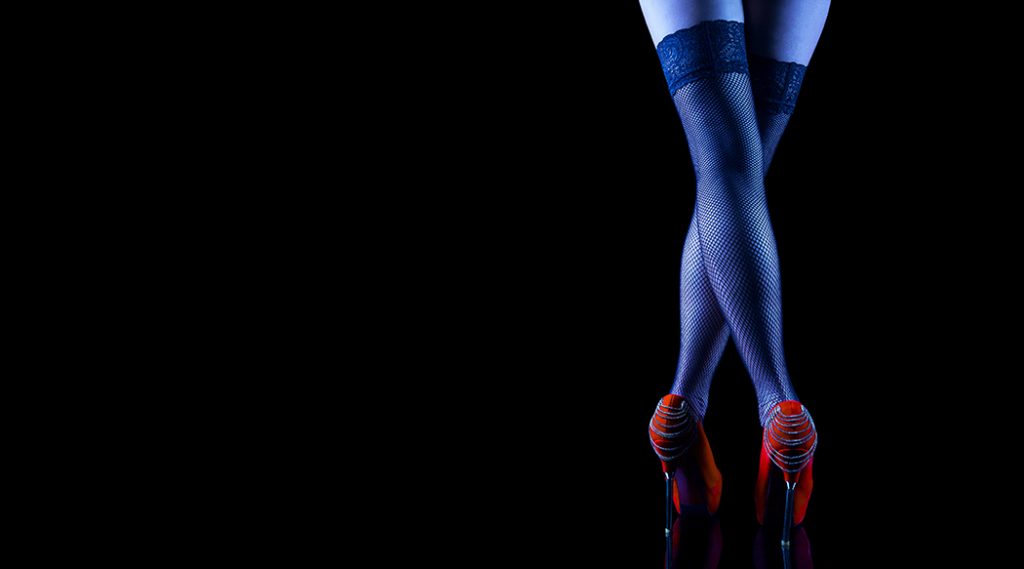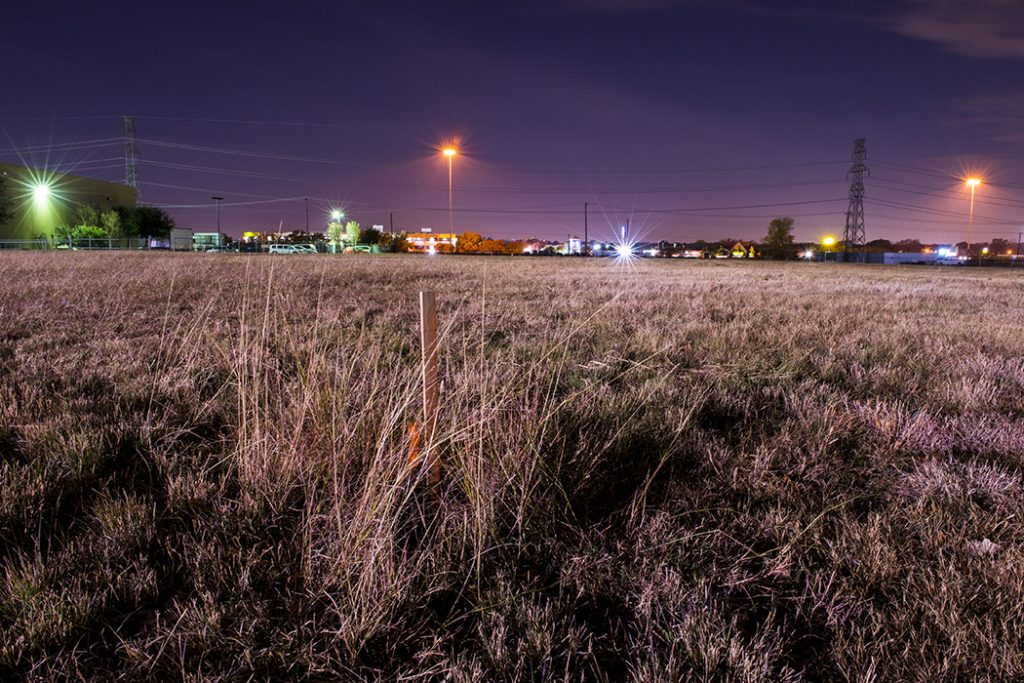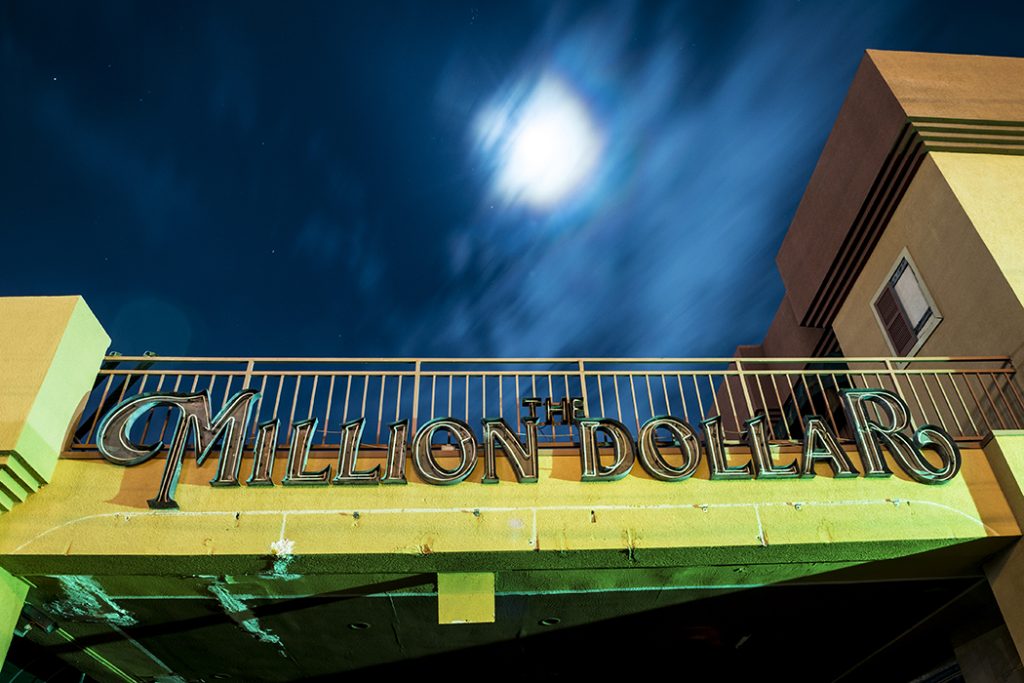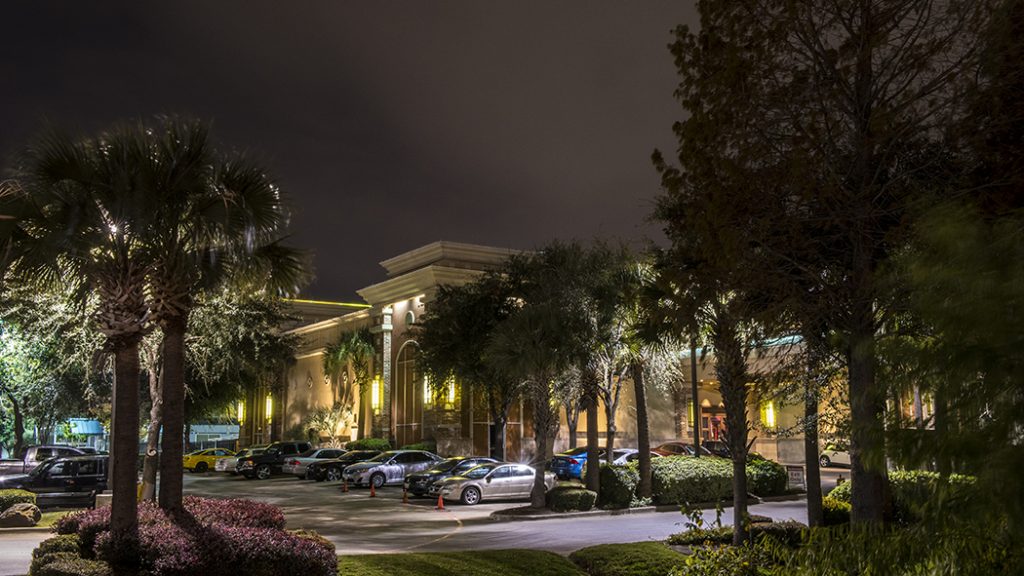
Photo by Danny Fulgencio
What the SOB
City Councilman Adam McGough says he did everything he could short of begging Moss Farm neighbor Alkos Giagtzis not to open his topless club on Petal Street, but it wasn’t enough. So McGough becomes only the latest in a long line of politicians who have tried, and failed, to keep sexually oriented businesses (SOB) out of our neighborhood.
“Lake Highlands has always had a reputation as a family friendly neighborhood,” says Bill Keffer, a longtime attorney who represented our neighborhood in the Texas House from 2002-06 during which he penned a law that stripped strip clubs of their liquor licenses. “But then we had these sexually oriented businesses — how did that happen?”
SOBs target corners of the city where their business model complies with city laws, which is limited to industrial areas away from schools, churches, homes and parks, like the strip north of LBJ Freeway. With a second strip club coming to the neighborhood, some fear a slice of Lake Highlands is positioned to become a de facto red-light district.
“If the zoning is acceptable, that’s all they need,” says Plan Commissioner Tip Housewright.
If zoning is the problem, Park Board representative Robb Stewart may have found a solution with a plan to build pocket parks to prevent SOBs. While it hasn’t yet found its legs, the idea could offer neighbors a tangible way to control the flow of sex shops and strip clubs. It will take buy-in from the community, specifically business owners in the industrial center, in the form of land donations and long-term maintenance contracts.
“Someone will have to step up and say, ‘It’s worth it to me to build a park so I don’t have a sexually oriented business within 1,000 feet of me,’ ” Stewart says.

This vacant lot on Petal Street will soon hold a two-story topless club. (Photo by Danny Fulgencio)
Live nudes on Petal Street
In a vacant field at 10995 Petal St., the city-mandated sign announcing the application for a sexually oriented business quietly appeared this summer. Giagtzis purchased the property for $850,000 on the condition that he can build his 16,000-square-foot, yet-to-be-named topless club in the industrial corner north of LBJ.
Many neighbors assumed they’d have the chance to protest the new development during city review, but that’s not how SOBs work in Dallas. Assuming it meets the zoning requirements, such businesses only need a license approved by the Dallas Police Department.
“It just simply doesn’t go through planning and city channels,” Housewright says.
As long as the project complies with zoning laws and the owners and managers don’t have significant criminal histories, DPD is required to approve the request.
“I have spoken to the city attorneys, and I do not have the authority to deny the license based on community opposition,” interim police chief David Pughes told the Advocate in August before approving the application.
Giagtzis did not respond to requests for comments on this story, but he told the Advocate this summer the business would be “as nice as anything Las Vegas has to offer.” He said it will cost upwards of $2 million to build and, as a topless club, the business can have a full bar if its liquor license to the Texas Alcoholic Beverage Commission is approved.
The adjacent businesses have already expressed their concerns.
“I don’t understand the logic of putting that business in here. It’s confounding us all. We’re worried about property values. We think an SOB will bring more problems,” says Joel Burch, CFO of Interstate Wire, which sits directly next to the proposed club on Petal Street.
“We’ve already had burning cars, cars crashing into buildings, stolen cars — we’ve had to install 35 cameras trying to keep the misfits at bay. We have to have a big gate and fence, and this is only going to hurt matters.”
Experts continue to debate whether sexually oriented businesses lead to an uptick in crime. A 2008 Texas City Attorneys Association study states it’s a “scientific fact sexually oriented businesses pose large, statistically significant ambient public safety hazards in terms of prostitution, drugs, assault, robbery, and vandalism.” Meanwhile, a 2004 Law and Society Association study found “that the nearby areas surrounding the adult business sites have smaller numbers of reported crime incidents than do corresponding areas.”
While no building permits had been filed as of December, police approved the license, meaning construction could start anytime on the new club. Once built, it will be open daily from 11 a.m. to 4 a.m.

Though it shut down decades ago, the Million Dollar Saloon’s remains still sit on Upper Greenville. (Photo by Danny Fulgencio)
Brief history of Dallas strip clubs
“By all accounts, the upscale topless joint was invented in Dallas 15 years ago,” declared D Magazine in the 1996 story, “Why Dallas is the Capital City of Sex.” It was referring to the 1981 opening of Million Dollar Saloon on Greenville Avenue at Park Lane. Owner Don Furrh named it after the cost to build the club, a staggering price at a time when most strip clubs were in seedy corners, tucked behind airports and industrial parks. No one went to these clubs expecting stylish décor or well-mixed cocktails, until Furrh came onto the scene.
At the edge of our neighborhood, he brought valet parking and dress codes to the business, establishing an air of class that hadn’t been seen before.
Competitors at the time doubted he’d see a return on his investment. Within a year, it became the highest grossing topless club in Dallas, where dancers were said to pocket $10,000 a night. It not only stayed that way for years, it inspired a slew of similarly lavish clubs across the city and country. By 1995, Dallas’ top six topless clubs raked in more than $18 million in beverage sales alone, representing $2.5 million in liquor taxes for the city, according to D Magazine. The gold mine inspired copy cats, and in 2000, the city had more than 60 sexually oriented businesses on the books, the bulk of which were strip clubs.
The industry had become a financial juggernaut, but neighbors weren’t impressed.
Fighting the proliferation of strip clubs would not prove easy. The industry’s deep pockets and First Amendment protections make them a lofty opponent in the courtroom.
In 1986, Dallas banned sexually oriented businesses from operating within 1,000 feet of a church, school, park, neighborhood or other SOB. But strip clubs avoided that restriction by seeking a dance hall classification, where the women wore tiny pasties to cover their nipples and avoid nudity citations. In 1993, the city attempted to force dancers to wear bikini tops, but a judge struck that law down after city attorneys failed to prove that “side boob” put the public at risk. A 1997 attempt to close the “dance hall” loophole by defining an SOB as any entertainment that provides “sexual stimulation” bombed when the club’s attorneys successfully argued the guidelines were too vague and could include anything from a steamy romance novels or magazines with sex-based content, like Cosmo.
Even with laws that the courts upheld, there are loopholes to be found. No sexual touching between a dancer and client is allowed, a law that police rarely have the resources to enforce.
“If they’ve got a choice between getting drunk drivers off the road or busting some dancer in a titty bar for squeezing some guy through his pants, it’s just a matter of priorities,” Christopher Burnett, a staff attorney for the Texas Alcoholic Beverage Commission, told the Dallas Observer in 2000.

When P.T.’s was forced to close at its lakeside location, it picked up and moved north to Plano Road. (Photo by Danny Fulgencio)
The fight hits Lake Highlands
Cloisters neighbors weren’t happy when P.T.’s Gold Club, a topless bar owned by Nick Mehmeti, opened in the 1990s on Lawther Drive at Northwest Highway, just a stone’s throw away from White Rock Lake Park.
Its location violated the city’s own ordinance by sitting within 1,000 feet of both a park and a neighborhood. Mehmeti sought and received annual exemptions from that law via the city’s License and Appeal Board, which granted the request because it agreed the club was not “lowering property values, causing urban blight or threatening public decency.”
Residents spoke out at the License and Appeal Board hearings, but their opposition fell on deaf ears. P.T.’s made between $2.5 million and $3.5 million a year, and paid the city more than $1 million a year in tax revenue at that time, which some say played a role in the exemptions.
“Does the city really want to go after them with how much money they make?” asks Keffer when discussing the city’s history with strip clubs. He added that some neighbors have always been supportive of SOBs and have no problem with them operating in Lake Highlands.
But some did.
When New Fine Arts, an adult theater and sex shop, made plans to open on Shiloh Road in the early 2000s, the Lake Highlands Area Improvement Association kicked into high gear. The neighborhood advocacy group of homeowners association leaders wanted to stem the flow of sexually oriented businesses and keep Lake Highlands from becoming a safe haven for SOBs. Working with Keffer, the association encouraged Dallas police to up its patrols of P.T.’s, leading to just enough arrests, mostly for drunk driving, that the License and Appeal Board refused the club’s exemption request in 2003.
P.T.’s was forced to vacate its lakeside home, and many hoped it would pick up and leave the neighborhood entirely. Instead, Mehmeti made plans to move north to Plano Road, in an industrial corner away from schools, churches and parks.
That wasn’t enough for some, who upped the political ante.
Led by the homeowners association, neighbors first targeted P.T.’s liquor license by starting a letter-writing campaign protesting its Plano Road application to the Texas Alcoholic Beverage Commission.
Even though it was one of the state’s biggest license protests to date, Keffer says, it failed. Like Dallas police, TABC cannot deny a license for an otherwise compliant business simply because it’s not popular with neighbors.
Concurrently, Keffer worked the legislative angles by penning a bill that made it illegal to serve alcohol at SOBs in a dry city, which Dallas was at the time. Previously, topless clubs, like bars, could operate as a “private club” where membership was required by swiping a state-issued ID at the door. Keffer hoped by cutting off the cocktails, it would force the business to close.
“It was an attempt to mess up P.T.’s ability to operate profitably,” he says. “But that’s not what happened.”
The club spent five years fighting the law in court, but unlike so many others, this law actually stuck.
In response, P.T.’s increased its cover charge and hired runners to fetch alcohol from outside vendors for customers at a markup for the new BYOB establishment — in effect, complying with the new law may have made P.T.’s even more profitable. It also meant the club wasn’t restricted by TABC laws to close at 2 a.m., and could stay open until 4 a.m.
“Citizens can go be noisy at City Hall or in Austin, but it doesn’t seem to do a lot,” Keffer says. “I think the only thing that works is for people to stop going [to strip clubs], but that doesn’t seem to happen.”
Pocket parks shift the paradigm
Dallas’ multi-decade battle with SOBs has largely focused on controlling how such businesses can operate, with limited success. Attorney Robb Stewart, McGough’s Park Board appointee, may have found a way to block the businesses all together in Lake Highlands.
He was inspired by the pocket parks that fleck San Francisco. “Some are just the size of two parking spaces,” he says. “How could we use that in Dallas?”
Originally he was focused on beautification, pointing out that the area north of LBJ is a “park desert.” But the idea morphed into a potential tool for neighbors who don’t want SOBs in the 75238. If a SOB can’t open within 1,000 feet of a park, why not dot the neighborhood with greenspaces?
“We have lamented the lack of tools we have to deal with [SOBs],” Housewright says. “This could be a new option.”
Stewart says the cash-strapped city isn’t likely to pay for land acquisition or park maintenance. Property owners within the industrial area will have to agree to donate land to the city, build a park and sign a maintenance contract to keep it up.
“I would think there are certain community groups that could help with that,” Stewart says, adding that only new SOBs would be affected, as existing businesses would be grandfathered in.
Housewright says at least one property owner in the area has expressed interest in getting involved and forking over a piece of land if it’ll keep future strip clubs at least 1,000 feet away. But how exactly such a plan would work still needs to be hashed out between the city attorney’s office, plan commission and park board, Stewart says. It’s something he plans to focus on first thing in the new year, and is hopeful a resolution can be found quickly.
“These people have found a gap in our system to be able to [build SOBs], we need to plug that gap,” Stewart says. “It takes more than just people being angry, we need people to act.”
Carol Toler contributed to this story.





